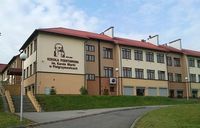Controversial School Reforms in Poland

The start of term on 1 September saw new school reforms come into effect in Poland, which had been announced by the ruling national conservative PiS in autumn 2016. The promised reforms had caused wide-spread protests from ten of thousands of teachers, parents and opposition supporters.
Structural changes included in the reform involve reorganising the previous three-tier system into a two-tier system. The middle schools (Gimnazjum in Polish), which covered years 7 to 9 have been scrapped and replaced by an additional two years in primary school and one additional year in secondary school.
According to estimates made by the teaching union ZNP, known to be critical of the government, the closure of the 7,500 middle schools will result in tens of thousands of teaching staff losing their jobs. Critics fear that new, government friendly, teachers and head teachers will be installed in the newly enlarged primary schools.
The PiS also plans to introduce new curricula. Critics are warning of ideological changes: saying the PiS wishes to influence teaching content and to politicise lessons. The new curricula are to focus more attention on national content. History teaching will contain less international history and more Polish history. The curricula for the history of the Second World War will no longer mention the holocaust.
Biology teaching has proved a further point of contention. Last December a team of biologists from the Polish Academy of Sciences (PAN) criticised the fact that evolution would barely be taught in primary schools.
Opponents of the reforms are concerned that the short time frame in which the restructuring has been pushed through will result in many schools descending into chaos. In many primary schools the required construction work had not been completed before the start of the new term and new curricula are only available for years one, four and seven.
‘Many local politicians are frustrated because they have ever-decreasing freedom over content, but must shoulder the organisational and financial burden of the reforms’ said education researcher Marcin Wiatr from the Georg Eckert Institute in Braunschweig, Germany.
Editorial staff (mm)
Sources
Image Credit: Primary School in Poland by Twkrol / CC BY-SA 3.0
Information sources (German only): Spiegel 31.08.2017, DW Akademie 02.09.2017, Deutschlandfunk 04.09.2017